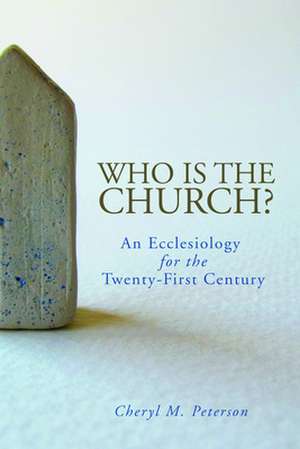Who Is the Church?: An Ecclesiology for the Twenty-First Century
Autor Cheryl M. Petersonen Limba Engleză Paperback – 4 mai 2013
Many congregations today are beset by fears, whether over loss of members and money, or of irrelevancy in an increasingly pluralistic society. To counter this, many congregations focus on strategy and purposewhat churches "do"but Cheryl Peterson submits that mainline churches need to focus instead on "what" or "who" they areto reclaim a theological, rather than sociological, understanding of themselves.
To do this, she places the questions of the church's identity and mission into a conversation with the primary ecclesiological paradigms of the past century: the neo-Reformation concept of the church as a "word event" and the ecumenical paradigms of the church as "communion." She argues that these two paradigms assume a context of cultural Christendom that no longer existsfocused on the church that is gatheredrather than the missional church that is sent out.
Peterson suggests instead that we understand the church as a people created by the Spirit to be a community, and that we must claim a narrative method to explore the church's identityspecifically, the story of the church's origin in the Acts of the Apostles. Finally, here is a way of thinking of church that reconciles the best of competing models of church for the future of mainline Protestant theology.
Preț: 190.72 lei
Nou
36.50€ • 38.03$ • 30.35£
Carte tipărită la comandă
Livrare economică 10-24 februarie 25
Specificații
ISBN-10: 0800698819
Pagini: 153
Dimensiuni: 155 x 228 x 10 mm
Greutate: 0.28 kg
Editura: Augsburg Fortress Publishing
